
Targeted Oncology
Scope & Guideline
Transforming oncology with cutting-edge therapies.
Introduction
Aims and Scopes
- Targeted Therapies in Oncology:
The journal emphasizes the development and application of targeted therapies, including small molecules, monoclonal antibodies, and antibody-drug conjugates, for various malignancies. - Molecular Characterization of Tumors:
Research focusing on the molecular and genetic profiling of tumors to identify actionable mutations and guide treatment decisions is a key area of focus. - Real-World Evidence and Outcomes:
Targeted Oncology publishes studies that provide insights into real-world treatment patterns, patient outcomes, and the effectiveness of therapies in diverse populations. - Clinical Trials and Drug Development:
The journal includes reports on clinical trials, particularly phase 1 and 2 studies that assess the safety and efficacy of new agents, as well as combination therapies. - Immunotherapy and Combination Approaches:
Research examining the intersection of immunotherapy with targeted therapies, including immune checkpoint inhibitors and their role in enhancing treatment outcomes. - Emerging Biomarkers and Predictive Models:
Studies identifying new biomarkers that predict responses to therapy and the development of prognostic models are central to the journal's aims.
Trending and Emerging
- Integrative Approaches to Precision Medicine:
There is a growing trend toward integrating genomic, transcriptomic, and proteomic data to develop personalized treatment strategies tailored to individual patients. - Real-World Evidence Studies:
An increase in real-world evidence studies showcasing treatment effectiveness, patient adherence, and outcomes in routine clinical practice reflects the journal's focus on practical applications of research. - Biomarker-Driven Therapy:
Emerging research centers on identifying and validating biomarkers that guide therapy selection, particularly in the context of targeted and immunotherapies. - Combination Therapies:
The exploration of combination therapies that leverage both targeted and immunotherapeutic agents is gaining prominence, underscoring the complexity of cancer treatment. - Patient-Centric Research:
There is an increased focus on patient-reported outcomes, quality of life studies, and the psychosocial aspects of cancer treatment, reflecting a holistic approach to oncology.
Declining or Waning
- Traditional Chemotherapy:
There is a noticeable decline in publications centered around traditional chemotherapy regimens as the focus shifts toward targeted therapies and immunotherapy. - Single-Agent Studies:
Research exclusively investigating the efficacy of single-agent therapies is less prevalent as combination therapies gain more traction in clinical settings. - General Cancer Epidemiology:
While still important, broad epidemiological studies without a targeted focus on molecular mechanisms or specific therapies have become less emphasized. - Non-Molecularly Targeted Treatment Strategies:
The emphasis on non-targeted treatment strategies is decreasing as precision medicine and personalized therapy approaches dominate the landscape. - Basic Science without Clinical Relevance:
Studies that do not bridge laboratory research with clinical implications are less frequently published, as there is a stronger push for translational research.
Similar Journals

JCO Precision Oncology
Fostering Breakthroughs in Individualized Cancer TreatmentsJCO Precision Oncology, published by Lippincott Williams & Wilkins, is a leading journal in the field of cancer research and oncology, recognized for its high-impact contributions and innovative approaches to precision medicine. Since its inception in 2017, this journal has consistently ranked in the Q1 category in both Cancer Research and Oncology for 2023, reflecting its esteemed position within the academic community. With a rigorous peer-review process and a focus on disseminating cutting-edge research, JCO Precision Oncology serves as a vital platform for researchers, clinicians, and healthcare professionals aiming to enhance the understanding and treatment of cancer through individualized therapies. The journal's comprehensive scope includes studies on genetic profiling, biomarker research, and novel therapeutic strategies, making it an essential resource for anyone involved in cancer care and research. Explore further and join a community committed to advancing precision oncology and improving patient outcomes.
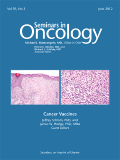
SEMINARS IN ONCOLOGY
Transforming Cancer Research into Clinical PracticeSEMINARS IN ONCOLOGY is a premier journal in the field of oncology, published by W B Saunders Co-Elsevier Inc. With its ISSN 0093-7754 and E-ISSN 1532-8708, this esteemed publication has been contributing significantly to cancer research and education since its inception in 1974. The journal currently holds a distinguished position in the academic landscape, ranking in the Q1 category for Hematology and Q2 for Oncology, and featured prominently in Scopus rankings—34th out of 137 in Medicine Hematology, and 108th out of 404 in Medicine Oncology. SEMINARS IN ONCOLOGY aims to disseminate cutting-edge research, critical reviews, and innovative treatment approaches, making it an invaluable resource for researchers, healthcare professionals, and students dedicated to the fight against cancer. Although not an Open Access journal, it maintains a commitment to high-quality, peer-reviewed content, further solidifying its role as a vital reference point in oncological studies. The journal serves as a crucial platform for the exchange of knowledge, insights, and advancements that shape the future of cancer care.

Kidney Cancer
Advancing kidney cancer research for a healthier tomorrow.Kidney Cancer, published by IOS PRESS, is an esteemed open-access journal dedicated to advancing knowledge in the field of nephrology and oncology. Since its inception in 2017, this journal has provided a dynamic platform for researchers, practitioners, and students to disseminate their findings and discuss innovative approaches to kidney cancer treatment and research. With an ongoing commitment to fostering collaboration and sharing critical insights, Kidney Cancer aims to bridge gaps in understanding and promote new methodologies in patient care. Despite its current ranking in the lower quartiles of its category, the journal is positioned to make significant contributions to the academic community by publishing high-quality, peer-reviewed articles that enhance the discourse in kidney cancer research. Furthermore, its open-access model ensures that valuable research is accessible to a global audience, supporting the urgent need for advancements in this critical area of health. Join the conversation and contribute to the growing body of knowledge in this vital field.

INVESTIGATIONAL NEW DRUGS
Driving Discoveries in Oncology and PharmacologyINVESTIGATIONAL NEW DRUGS is a prestigious journal published by SPRINGER, dedicated to advancing research in the fields of pharmacology and oncology. With its origins dating back to 1983, the journal continues to play a critical role in disseminating groundbreaking studies and innovative methodologies related to drug development and therapeutic strategies. It holds an impressive impact factor among leading academic publications, ranking in the top quartiles (Q1 and Q2) of its respective categories, evidenced by Scopus rankings of #43/272 in Medical Pharmacology and #88/404 in Medical Oncology. While it offers traditional subscription-based access, it remains an essential resource for researchers, professionals, and students eager to stay abreast of significant advancements in drug research. Through rigorous peer review and comprehensive coverage, INVESTIGATIONAL NEW DRUGS aims to foster the development of effective new therapies and enhance our understanding of pharmacological interventions in oncology.
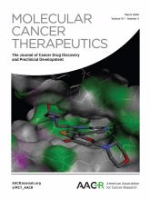
MOLECULAR CANCER THERAPEUTICS
Exploring the molecular mechanisms behind cancer therapies.MOLECULAR CANCER THERAPEUTICS, published by the American Association for Cancer Research, is a premier journal dedicated to advancing the field of cancer research and therapy since 2001. With a notable impact factor reflecting its high-quality content, this journal stands out in the Q1 category for both Cancer Research and Oncology as of 2023. Researchers, clinicians, and students interested in innovative treatment strategies and molecular mechanisms can find valuable insights within its pages, bolstered by a rigorous peer-review process and a global perspective on cancer therapeutic developments. Although the journal operates under a subscription model, it provides comprehensive access to cutting-edge studies and reviews that drive forward the understanding of cancer biology and treatment modalities. The journal's impressive Scopus rankings further validate its influence within both oncology and the broader cancer research community, making it an indispensable resource for anyone committed to combating cancer through science.
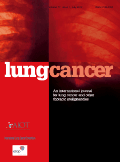
LUNG CANCER
Fostering Collaboration for Breakthrough DiscoveriesLUNG CANCER, published by Elsevier Ireland Ltd, is a pivotal academic journal dedicated to advancing knowledge in the fields of Cancer Research, Oncology, and Pulmonary and Respiratory Medicine. With an impressive impact factor reflected by its Q1 ranking across three key categories for 2023, this journal occupies a prestigious position within the research community, emphasizing quality and significance in published works. Since its inception in 1985, LUNG CANCER has provided a comprehensive platform for researchers and clinicians to disseminate findings and novel insights, enhancing the understanding and treatment of lung cancer. The journal stands out with Scopus rankings, placing it in the top percentile across multiple relevant fields, including a notable rank of #20 in Pulmonary and Respiratory Medicine. By fostering collaboration among scholars, the journal aims to facilitate innovative research and promote evidence-based practices that could transform patient outcomes. As such, LUNG CANCER is an essential resource for those navigating this complex area of study, from seasoned researchers to aspiring professionals.
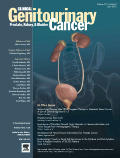
Clinical Genitourinary Cancer
Leading the charge in urological research excellence.Clinical Genitourinary Cancer, published by CIG MEDIA GROUP, LP, is a leading journal in the fields of Oncology and Urology, with an impressive impact reflected in its quartile rankings (Q2 in Oncology and Q1 in Urology for 2023) and strong Scopus rankings (22nd in Urology and 162nd in Oncology). The journal aims to innovate and inspire new research in genitourinary malignancies, providing a platform for the latest findings in diagnosis, treatment, and patient management. With its commitment to high-quality publications since its establishment in 2005, Clinical Genitourinary Cancer serves a crucial role in advancing the understanding of these complex conditions and enhancing clinical practices. Researchers, professionals, and students in the medical community are encouraged to engage with this essential resource, which facilitates open access to pioneering studies that drive the field forward.
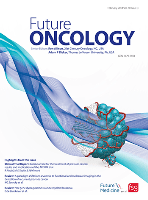
Future Oncology
Leading the charge in cancer research innovation.Future Oncology is a premier peer-reviewed journal published by FUTURE MEDICINE LTD, dedicated to advancing research and innovation within the field of oncology. Established in 2005 and set to continue through 2024, this journal serves as an essential resource for researchers, healthcare professionals, and students engaged in cancer studies. With its emphasis on groundbreaking findings and multidisciplinary approaches, Future Oncology holds an esteemed reputation, reflected in its 2023 category quartiles ranking it in Q2 for Cancer Research and Q1 for Medicine (miscellaneous). The journal is indexed in Scopus, showcasing its rigorous content, with rankings in the 63rd percentile for Oncology and the 46th percentile for Cancer Research. Although it does not operate on an open-access model, its commitment to disseminating cutting-edge findings makes it an invaluable asset for those seeking to stay at the forefront of oncology research.Future Oncology strives to bridge the gap between laboratory and clinical research, fostering collaboration and appreciation for the complexities of cancer treatment.
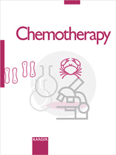
CHEMOTHERAPY
Exploring Breakthroughs in Drug Discovery and OncologyCHEMOTHERAPY, published by KARGER, is a premier academic journal established in 1960, dedicated to disseminating cutting-edge research and advancements in the fields of drug discovery, infectious diseases, oncology, and pharmacology. With an impressive Scopus ranking placing it in the Q2 category for major disciplines such as Drug Discovery and Infectious Diseases, this journal provides an invaluable platform for researchers and professionals aiming to explore new therapeutic approaches and methodologies. Located in the heart of Switzerland, its publications are a key resource for anyone looking to stay informed about the latest developments and trends in the pharmacological sciences. Researchers can benefit from its diverse scope while contributing to a growing body of knowledge that emphasizes the importance of effective chemotherapeutic strategies in modern medicine. Despite not being an Open Access journal, CHEMOTHERAPY remains committed to maintaining a rigorous peer-review process, ensuring the highest quality of published work.
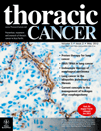
Thoracic Cancer
Advancing knowledge in thoracic oncology.Thoracic Cancer is a distinguished open-access journal published by WILEY, dedicated to advancing the field of thoracic oncology. Since its establishment in 2010, the journal has emerged as a crucial platform for the dissemination of innovative research and clinical studies relating to lung cancer and other thoracic malignancies. With a commendable impact reflected in its 2023 Q2 rankings in the categories of Medicine (Miscellaneous), Oncology, and Pulmonary and Respiratory Medicine, the journal features high-quality articles that are vital for researchers, clinicians, and students aspiring to enhance their understanding of thoracic cancers. Operating out of Australia, Thoracic Cancer has embraced a commitment to open access since 2015, ensuring that vital research is readily available to a global audience. The journal's rigorous peer-review process and emphasis on novel findings make it an indispensable resource for professionals seeking to stay at the forefront of this rapidly evolving field.